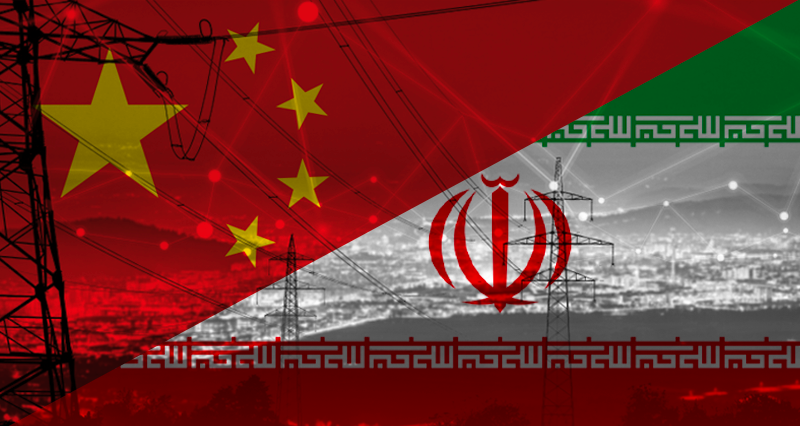On the one hand, the end of the Cold War signaled the beginning of liberalism’s unipolar world domination, and the end of any possibility for competing ideas. On the other, the balance of power maintained by the Cold War was upended, opening a geopolitical Pandora’s box. To date, Francis Fukuyama’s prematurely announced “end of history” has not arrived, and its non-applicability only seems more and more clear.
Although he had promoted liberal-democracies as the only viable political models, today, it is the governments eschewing their values and power that are poised to seize the future. One profound example is Turkey, a country that was led by unstable reactionary coalition governments throughout the Cold War, but began to readjust in order to survive terrorist threats and security problem between 1990 to 2000. During this tense period, Turkey tried to link all of its problems to issues of national security, all the while failing to bring the national income to even $ 2,000 per capita. However, in the early 2000s, Turkey became a one-party state, and in the wake of the new political climate that emerged after the end of the Cold War, it adopted a weighted proactive foreign policy model. The country began to take strategic steps towards transforming from a passive buffer state into a sovereign country, defining its political strategy and developing economic relations with multiple world powers.
In contrast to the Cold War, Turkey began to establish a universally friendly foreign policy toward countries in the region. It sought to open a new page in its relationships with Syria, Iraq, Georgia, Armenia, Greece and Bulgaria, choosing mutually beneficial realism over poisonous hostile rhetoric. Ankara began negotiations with Armenia without preconditions and started holding joint meetings with ministers from Iraq and Syria. Thanks to the development of international trade forged through this strategy, national income indicators rose significantly, and in the 2010s per capita income approached $10,000.

At the same time, Western countries attempted to spoil bilateral relations between Turkey and Russia using manipulative rhetoric about an alleged Turkish “shift-of-axis”. Turkey responded to these attacks by establishing cooperation based on common global interests. As part of this plan, it began to conduct activities aimed at further bolstering cooperation, developing mutual trade and strengthening relations with countries around the world. Turkey understood that without taking these steps and gaining allies, it would not be able to effectively resist mounting global destabilization.
Turkey managed to develop a dynamic economic structure, vibrant population, high growth rates and well-functioning system of government, and came to serve as a source of inspiration for Muslim countries tired of the poverty and unemployment caused by oppression and corruption. It was this factor that began to seriously disturb the Western world, which had been desperately trying to maintain a totalized self-favoring world order based on the Bretton Woods system since the end of World War 2.
Responding to harsh social realities, the Arab Spring began to shake the structures of power which had been deeply rooted in the Arab world. Mubarak in Egypt, Gaddafi in Libya and Assad in Syria faced serious social unrest. Saudi Arabia and other countries in the Persian Gulf also began to clamp down after seeing the warning signs. Under these conditions, the Morsi government, which had come to power through the will of the Egyptian people, was deposed in a military coup, and General Al-Sisi, protégé of the West and insatiable client of European arms markets, took his place. The Arab Spring quickly turned into an “Arab winter”. This “Arab winter” not only postponed the fulfillment of the hopes of the region but also led to a universal strengthening of radical tendencies.
As a result, today there are no countries that came away from the Arab Spring with a democratic way of life, a happy population or much hope for the future. All that remains are millions of dead and mutilated civilians, tens of millions of refugees forced to seek a home in other countries, and continued exploitation by the West.
In the wake of such instability and chaos, the strategy Turkey developed in the early 2000s is no longer viable. The only way to counter this chaos is to develop a strategy relevant to today’s conditions.
Today’s strategy needs to be premised on the refusal to accept a unipolar world order, and aimed toward achieving multipolarism: a global society of mutual interests rooted in national sovereignty, tradition and true cultural diversity.
Critical to reaching this lofty goal is establishing a policy of regional solidarity. To solve crucial issues like the Syrian crisis, Turkey must foster positive relationships with the largest players in the region – Russia and Iran. Despite the myriad of problems and disagreements between Turkey, Russia and Iran, these nations must work together. The three must also at least find points of contact with leading EU economies, such as Germany, France and the United Kingdom.
China’s “One Belt – One Way” global trade initiative is one of the most important steps toward this end. Established to unite territory from China to Europe, the policy includes the Turk-Stream energy initiative, which will grant Turkey new possibilities across the globe.
Far from facing “the end of history”, Turkey is only starting out from a new beginning.

















Leave a Reply